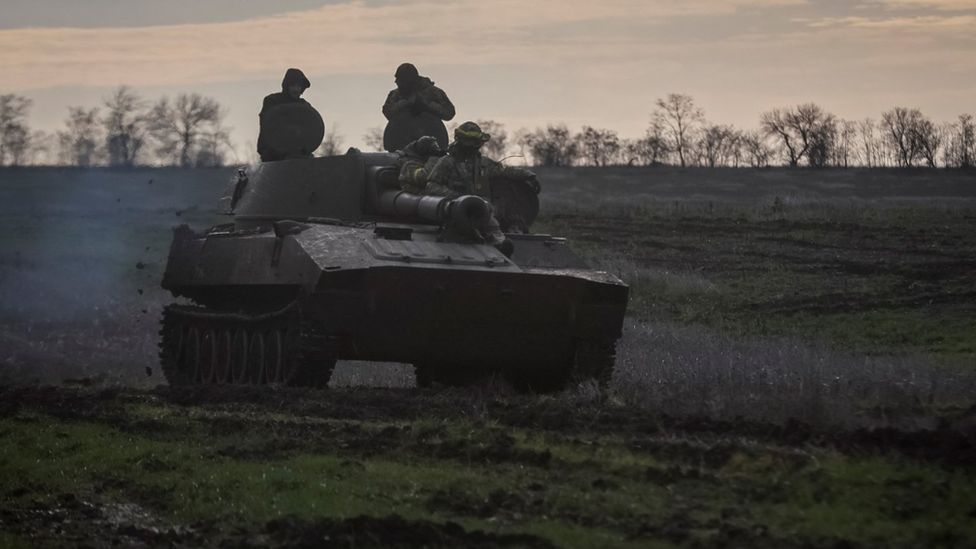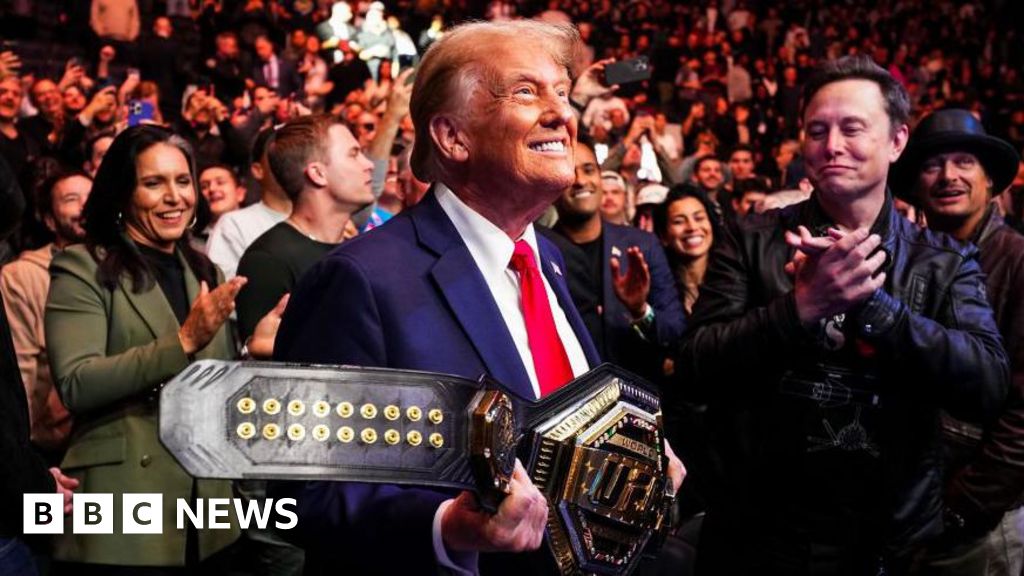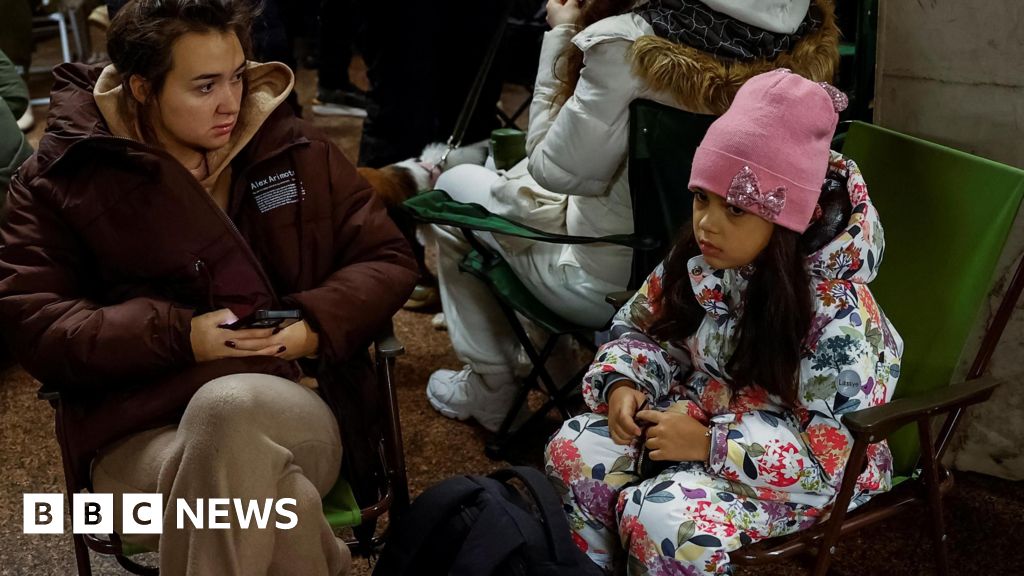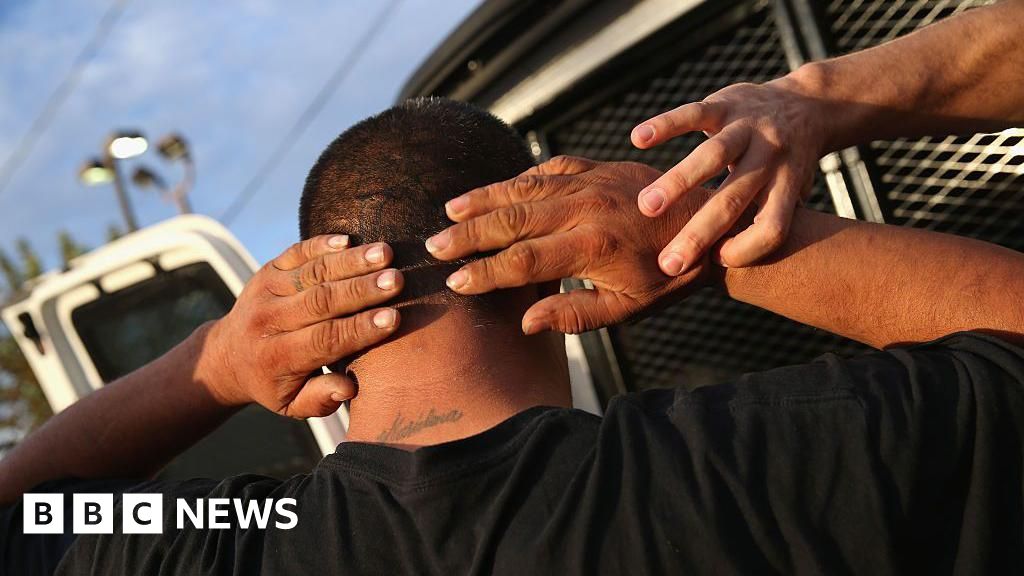ARTICLE AD BOX
 Image source, Reuters
Image source, Reuters
Ukrainian servicemen ride a self-propelled howitzer, amid Russia's attack on Ukraine, on a frontline in Donetsk region
By Paul Adams
BBC Diplomatic Correspondent
What does it mean when US President Joe Biden says he's willing to sit down with Vladimir Putin "to see what he has in mind"; or when German Chancellor Olaf Scholz conducts an hour-long phone call with the Russian leader, his first since September?
It certainly doesn't mean that high-level peace talks are about to begin.
As the US president himself said; it can only happen when the Russian leader indicates he is willing to end the war in Ukraine. This is something which has not yet happened.
The Kremlin's complaint that Washington does not recognise Russia's sovereignty over parts of Ukraine annexed at the end of September and the West's arming of Ukraine is responsible for Kyiv's alleged intransigence does not suggest that we are on the cusp of a breakthrough.
But, as the war drags on into its ninth month and Ukraine's bitter winter sets in - raising the prospect of yet more death, destruction and misery - the question of when peace talks should begin keeps coming up.
Watch: Ukrainians grieve their fallen soldiers
Recent remarks by Gen Mark Milley, chairman of the US Joint Chiefs of Staff, suggesting that an opportunity to negotiate should be grasped caused a flurry of speculation over possible divisions within the US administration.
Since then, officials and Western leaders have generally insisted that it is up to Ukraine to determine when and how to negotiate.
"We have to respect the Ukrainians to decide the moment and conditions in which they will negotiate about their territory," French President Emmanuel Macron said as he stood beside Mr Biden at the White House.
Privately, Western officials insist the time for talking has not yet arrived. They see no indication from Moscow of a serious desire to conduct meaningful negotiations.
Image source, SHAWN THEW/EPA
Image caption,US President Joe Biden and French President Emmanuel Macron shake hands after speaking at a press conference in Washington
With Ukraine on the front foot militarily and Russia's war effort facing multiple challenges, there is an implicit sense the West believes Russia will be in a weaker position in the coming months than it is now.
"There will be a moment, but now doesn't feel like the right time" was how one senior western diplomat put it recently.
For now, he said, the West's job is to continue supporting Ukraine militarily "to put them in the best position, whenever that point it".
Officials are extremely reluctant to be drawn into when that point will come.
But, if Ukraine continues to win back territory in the coming months, the debate will become more acute: just how far are Ukraine's Western allies prepared to support Kyiv's war aims?
In blunt terms, returning to the front lines which existed on 24 February, when Russia launched its all-out invasion, is one thing.
Encouraging Ukraine to go beyond them, to recapture areas seized by Russia in 2014 - Crimea and large parts of the Donbas - is another.
Quiet channels of communication do continue, involving the Pentagon and the Russian Defence Ministry, or CIA director William Burns and his Russian counterpart Sergei Naryshkin.
But, for all the talk of when and how peace talks should begin, we still seem to be a long way from a diplomatic solution to the war in Ukraine.

 1 year ago
26
1 year ago
26








 English (US)
English (US)